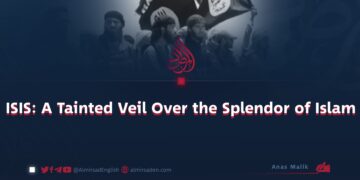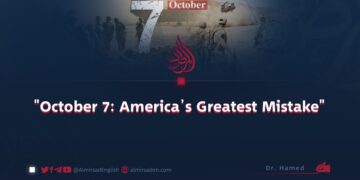Aziz Ahmad
Extremism and takfiri movements such as ISIS remain among the most pressing and intricate challenges of our time. Across different societies, individuals are drawn into these groups for a variety of reasons, and once entangled, the way back often appears narrow and uncertain. At their core, many of these men and women are victims of psychological manipulation and ideological conditioning. Helping them return to a balanced, productive life therefore requires more than condemnation; it calls for thoughtful, evidence-based strategies.
Experience in several countries has shown that with careful planning and consistent engagement, rehabilitation and reintegration are not only possible but achievable.
1. Restoring a Sound Understanding of Islam
Education is the cornerstone of any successful deradicalization effort. Many ideological captives within ISIS have been deceived by distorted interpretations of Qur’an and manipulated readings of Islamic texts. This misunderstanding can only be corrected through credible religious scholarship and open dialogue.
Programs led by moderate scholars, where participants are encouraged to ask questions and explore genuine interpretations of Quranic verses and Hadith, have proven especially effective. Over time, such exchanges can erode the doubts and false assumptions that once anchored their extremist convictions.
2. Dialogue Grounded in Respect and Reason
Another vital element is the establishment of sincere and respectful communication. Trust cannot emerge through force or humiliation. Harsh or dismissive interactions often deepen resentment and further entrench radical beliefs.
By contrast, patient, rational discussion conducted in a spirit of empathy rather than argument creates space for reflection. When their doubts are addressed calmly and supported by clear, credible reasoning, individuals are far more likely to recognize inconsistencies in their thinking and to begin distancing themselves from extremist ideology.
3. Presenting Positive Role Models
Rehabilitation also depends on showing that faith and moderation can coexist. When ideological captives encounter examples of Muslims who lead dignified, meaningful lives without resorting to violence or rigidity, they begin to see an alternative path.
The lives of historical and contemporary figures who have embodied both piety and balance offer powerful counter-narratives. These stories demonstrate that devotion to Islam is not defined by confrontation or exclusion, but by moral strength, wisdom, and compassion.
4. Addressing the Psychological Dimension
Extremism rarely stems from ideology alone. Many recruits have faced depression, loss, identity crises, or deep personal trauma before joining such groups. Professional psychological counseling is therefore an essential component of recovery.
Through specialized therapy, trained psychologists can help individuals uncover the emotional and cognitive triggers that made them susceptible to extremist messaging. In Iraq and Syria, for instance, rehabilitation programs that combine counseling with education have enabled many former ISIS members to rebuild a sense of purpose and reintegrate into normal life.
5. Rebuilding Lives Through Support Networks
Sustainable reintegration requires community and opportunity. Support groups formed by former extremists who have successfully rebuilt their lives can serve as powerful agents of change. Their shared experiences lend authenticity to their guidance and help others navigate the same difficult path.
Beyond moral support, practical assistance is equally crucial. Many recruits were driven to extremism by poverty or unemployment. Offering vocational training and access to stable employment allows them to envision a future rooted in dignity rather than despair.
Across the world, initiatives based on these principles have produced measurable success. While rescuing those influenced by ISIS remains an arduous task, it is far from hopeless. With the right blend of education, psychological care, economic opportunity, and social reintegration, individuals once trapped in ideological darkness can rediscover meaning and return to society as productive, peaceful citizens.



















































